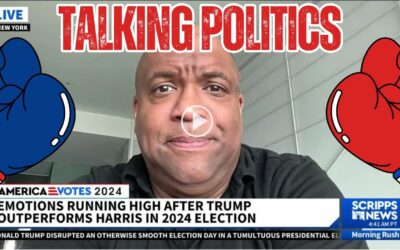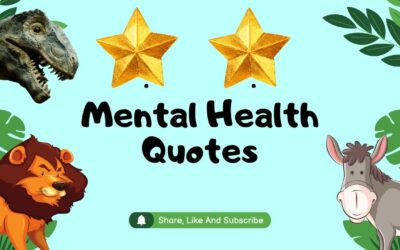Mike Veny is a mental health speaker. Learn more about his programs here.
Mental Health Help Hotlines & Websites
The following is a list of resources that could help you to either get the help you need or the information you are looking for. However, I have not personally used every one of these resources and am not personally endorsing any of them. It’s up to you to determine if they can benefit you, but if you are struggling I urge you reach out to one of these resources.

Crisis / Suicide Prevention
The National Suicide Prevention Lifeline
The National Suicide Prevention Lifeline is a free service that can be used by anyone that is experiencing suicidal thoughts, family members that are concerned about a loved one, and professionals that are looking for additional resources. You can speak with someone over the phone and they can put you in contact with a local center. This is available 24/7 so someone will be there whenever you need them.
Phone: 1-800-273-TALK (8255)
Website: http://suicidepreventionlifeline.org
The American Foundation for Suicide Prevention
The American Foundation for Suicide Prevention works to fund scientific research and raise awareness for those that are struggling with or affected by suicide. They provide resources for support groups and professionals as well as to individuals struggling with suicidal thinking.
Phone: 1-888-333-2377
Website: https://afsp.org
HopeLine
Hopeline is an organization that’s made up of independent volunteers. It’s a confidential telephone service for people that are in crisis. Their volunteers are not professional counselors. If they feel that your situation is outside of what they are able to assist with they will connect you to the appropriate referral.
Phone: 1-877-235-4525 (call or text)
Website: https://www.hopeline-nc.org
Crisis Text Line
Crisis Text Line is a free hotline that has counselors available 24/7 to help anyone in crisis. If you aren’t comfortable talking to someone texting can be a good option for getting the help you need.
Text the word CONNECT to 741741
IMALIVE
IMALIVE is an online chat based resource. It’s run by the Kristin Brooks Hope Center. They run programs for high schools and colleges along with having the online crisis chat. If you are experiencing a crisis, have suicidal thoughts, or are dealing with intense emotional pain the volunteers on their chatline can help.
Website: https://www.imalive.org
Gambling
National Council on Problem Gambling
The National Council on Problem Gambling offers several ways that those addicted to gambling and their families can get help. They provide literature on treatment and recovery options and the hotline can help you get connected with local resources.
Phone: 1-800-522-4700
Chat: https://www.ncpgambling.org/help-treatment/chat/
Online peer support forum: http://www.gamtalk.org
Website: https://www.ncpgambling.org/
Grief
Compassionate Friends
Compassionate Friends provides help for family members after the death of a child. They offer support through local chapters and online communities. There is a wealth of knowledge on their website and you can request a Bereavement Packet that can be customized to your situation. Through their website, you can find the closest chapter to you from their list of over 600 chapters.
Phone: 1-630-990-0010
Website: https://www.compassionatefriends.org
LGBTQ Support
LGBT National Hotline
The LGBT National Help Center works to assist people that have questions about gender identity and sexual orientation. They run three hotlines and offer private one on one chat online. They can help with issues like coming-out, safer sex, school bullying, relationship problems, and family concerns. They also have online chat rooms for youth and teens to help them find a community of acceptance.
Phone: 1-888-843-4564
LGBT National Youth Talkline: 1-800-246-7743
LGBT National Senior Talkline: 1-888-234-7243
Email: help@LGBThotline.org
Website: https://www.glbthotline.org
Mental Health
National Alliance on Mental Illness (NAMI)
NAMI does not provide counseling however they do provide information mental health issues such as symptoms and treatment options. They can also help connect you with support groups. You can reach out to the national office to be connected with your state chapter or you can find out more information on their website.
Phone: 1-800-950-6264
Website: http://www.nami.org
Anxiety and Depression Association of America (ADAA)
The ADAA provides access to information to help in the prevention and treatment of anxiety and depression. Their website is full of information and they do have an option to find a local therapist.
Phone: 1-240-485-1001
Website: https://adaa.org
Children and Adults with Attention-DeficiHyperactivityty Disorder CHADD)
The CHADD’s website has information for professionals, educators, parents, and adults that are living with ADHD. You can reach a specialist on the phone from 1:00 p.m. to 5:00 p.m. EST Monday through Friday.
Phone: 1-800-233-4050
Website: https://chadd.org
International OCD Foundation
The International OCD Foundation has resources and information to help you learn more about OCD. They can also help connect you with trained professionals within your local area.
Phone: 1-617-973-5801
Website: https://iocdf.org
Treatment and Research Advancements for Borderline Personality Disorder (TARA)
TARA provides access to researched-based information and help to cope with Borderline Personality Disorder. Whether you are the one struggling or it’s one of your loved ones they can connect you with local resources that for treatment and support.
Phone: 1-888-482-7227
Website: http://www.tara4bpd.org
Substance Abuse
Substance Abuse and Mental Health Services Administration (SAMHSA)
SAMHSA’s mission is to “reduce the impact of substance abuse and mental illness on America’s communities”. This agency is part of the U.S. Department of Health and Human Services. They provide information that can help you locate treatment options within your area. The office is open Monday through Friday from 8 a.m. to 8 p.m. EST.
Phone: 1-877-SAMHSA7 (1-877-726-4727)
Website: https://www.samhsa.gov
National Council on Alcoholism and Drug Dependence (NCADD)
NCADD works to connect individuals to the right resources in their community to help them recover from addiction. When you call the number below you will be redirected to a local center based on the zip code you enter.
Phone: 1-800-622-2255
Teen Health
Partnership for Drug-Free Kids
This free hotline provides one on one help for parents, family member, or caregiver that is looking for help with a child’s substance abuse. The phones are answered by trained specialists Monday through Friday from 9 a.m. to midnight EST and Saturday & Sunday from 12:00 p.m. through 5 p.m. EST.
Phone: 1-855-378-4373
Text: 55753
Website: https://drugfree.org (you can also email a specialist from a form on the website)
Trevor HelpLine
The Trevor Project works to provide suicide intervention and crisis intervention for LGBTQ individuals that are under the age of 25. The hotline is available 24/7, the online chat and text option is available every day from Noon through 1 a.m. EST.
Phone: 1-866-488-7386
Text the word START to 678678
Website: https://www.thetrevorproject.org
Teen Line
Teen Line provides teen-to-teen support from 9:00 p.m. to 1:00 a.m. EST for teenagers that are struggling and want to talk to another teen who knows what they’re talking about. They also provide resources, information, and offer message boards.
Phone: 1-800-852-8336
Text the word TEEN to 839863
Veterans
Veterans Crisis Line
The Veterans Crisis Line is there 24/7 to support any veterans, service members, National Guard and the Reserve, or their family and friends that are experiencing a crisis. There are qualified responders from the Department of Veterans Affairs that you can contact by calling, texting, or using an online chat.
Phone: 1-800-273-8255
Text: 838255
Chat: connect on their website https://www.veteranscrisisline.net
How to Use a Mental Health Hotline
If you or a loved one is struggling with mental health, know that you are not alone. You are not the only person to feel like you do, and there are people that care about you and want to help. If you don’t know who to turn to, there are plenty of hotlines that you can call. The people that answer these calls are there because you are important and they want to assist you in getting help.
If you think there is any chance that you or someone else you know might harm yourself or others, contact 911 immediately.
But if you simply don’t know where to turn to get help for yourself or someone else, or if you don’t know if you even should call someone, I urge you to reach out to one of the numbers below.
Who should call
Anyone can call a mental health hotline. The people on the other end of the phone are trained to speak to people suffering from mental health challenges, family members that are at a loss of knowing what to do next, and people that just have questions in general.
Do not feel that your situation is not “bad enough” or a “big enough deal” to warrant calling a hotline. These hotlines are here to serve people whether you have a simple question or need to find professional help.
What to expect from your call
I know that it can be intimidating and maybe even a little scary to pick up a phone and make the call. But there’s no reason to be afraid. While each hotline is slightly different, here is what you can generally expect from the experience.
- When the phone is answered you will hear a recorded message. It may include things like what button to push based on your language.
- The recording will tell you if you’re going to be routed to a local center and then you will hold while someone is placed on your call.
- A trained counselor will answer your call. Many hotlines don’t require you to provide your name if you aren’t comfortable doing so.
- The call is entirely about you and to help you. The counselor may ask you some questions about your situation if you are having a difficult time communicating why you called. They will listen to you. They will also provide resources that will be beneficial based on your situation.
Remember, you are in complete control of the call. The person is simply there to help you. They can be a listening ear, connect you with a mental health professional, or provide you with options of next steps that you could take. The calls are confidential unless you specify that you would like them to share the information or if they believe that you are a danger to yourself or someone else.
How to Find a Therapist
- Talkspace [affiliate link]: Get therapy on your mobile device with the opportunity to communicate with your therapist almost 24/7 via text, phone calls, or video calls.
- Good Therapy [affiliate link]: Find the right therapist for you at the right price fast! Also, learn how to manage your relationship with your therapist so you can get the most out of it.
- Online Therapy [affiliate link]: An innovative online therapy service that provides affordable, confidential, and convenient therapy services through your computer or mobile device.



